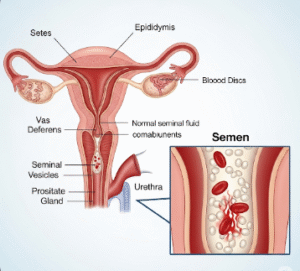Overview
Alcohol Use Disorder (AUD) is a chronic relapsing brain disorder characterized by the inability to control or stop alcohol consumption despite adverse social, occupational, or health consequences. It ranges from mild to severe and significantly impacts a person’s mental and physical health. AUD can lead to dependence and long-term damage if left untreated.
What is Alcohol Use Disorder?
Alcohol Use Disorder is defined by problematic drinking patterns that interfere with daily functioning or relationships. It encompasses both alcohol abuse and alcohol dependence and is diagnosed based on criteria set by the Diagnostic and Statistical Manual of Mental Disorders (DSM-5). AUD is considered a medical and psychological condition, not a personal failure or weakness.
A person is considered to have AUD if they meet at least 2 of 11 criteria (e.g., cravings, tolerance, withdrawal) over a 12-month period. The disorder is categorized as mild, moderate, or severe depending on the number of criteria met.
Symptoms
Common signs and symptoms of Alcohol Use Disorder include:
- Strong cravings for alcohol
- Drinking more or longer than intended
- Unsuccessful attempts to cut down
- Spending significant time drinking or recovering from its effects
- Neglecting responsibilities at work, school, or home
- Continuing to drink despite interpersonal problems
- Losing interest in activities once enjoyed
- Developing tolerance (needing more to feel the same effect)
- Experiencing withdrawal symptoms when not drinking
- Drinking in hazardous situations (e.g., driving)
- Continued drinking despite physical or psychological harm
Causes
Several factors contribute to the development of AUD:
- Genetics: Family history of alcoholism increases susceptibility
- Brain chemistry: Alcohol affects the reward and stress systems of the brain
- Environmental influences: Availability of alcohol, peer pressure, and culture
- Psychological conditions: Depression, anxiety, PTSD, and other disorders
- Early drinking habits: Starting at a young age increases risk
Risk Factors
- Family history of alcohol abuse or addiction
- Mental health disorders such as bipolar disorder or schizophrenia
- High levels of stress or trauma history
- Social and cultural acceptance of heavy drinking
- Peer influence, especially in adolescence or young adulthood
- Chronic pain or other health conditions that prompt self-medication
- Lack of support system or stable living environment
Complications
Untreated Alcohol Use Disorder can result in serious health and life consequences, including:
- Liver damage (cirrhosis, hepatitis)
- Cardiovascular disease
- Pancreatitis
- Brain damage and memory loss
- Increased risk of cancer (mouth, liver, breast)
- Accidents, injuries, or death due to impaired judgment
- Social isolation and family breakdown
- Legal and financial problems
- Alcohol withdrawal syndrome, which can be life-threatening
- Increased risk of suicide or violence
Prevention
- Education and awareness campaigns about alcohol risks
- Early intervention for risky drinking behaviors
- Support for children of alcoholics
- Stress management techniques to avoid self-medication
- Social support and counseling in high-risk groups
- Limiting alcohol marketing to vulnerable populations
- Screening in primary care to identify early signs
Treatment Options Korea
1. Medical Detoxification (If Needed)
- For individuals with moderate to severe withdrawal symptoms
- Managed in hospitals with benzodiazepines (e.g., lorazepam, diazepam)
- Monitoring for seizures, delirium tremens, and electrolyte imbalances
2. Inpatient or Outpatient Rehabilitation
- Inpatient rehab programs in psychiatric or addiction centers for severe cases
- Outpatient counseling and follow-up for milder cases
- Focused on abstinence, coping skills, and relapse prevention
3. Pharmacologic Therapy
- Disulfiram (Antabuse) – causes aversive reaction to alcohol
- Naltrexone – reduces craving and reward
- Acamprosate – helps maintain abstinence
- Available by prescription in Korea under psychiatric or addiction medicine supervision
4. Psychotherapy and Counseling
- Cognitive Behavioral Therapy (CBT) and Motivational Interviewing (MI)
- Group therapy and individual sessions
- Family counseling may be offered for support and education
5. Support Groups and Community Programs
- Alcoholics Anonymous (AA) – available in major cities in Korea
- Government-supported addiction programs via local health centers
- Multilingual support sometimes available for foreigners
6. Long-Term Follow-Up and Relapse Prevention
- Regular psychiatric or primary care visits
- Lifestyle modifications, stress management, and social reintegration
- Screening and treatment for liver disease, depression, or anxiety













